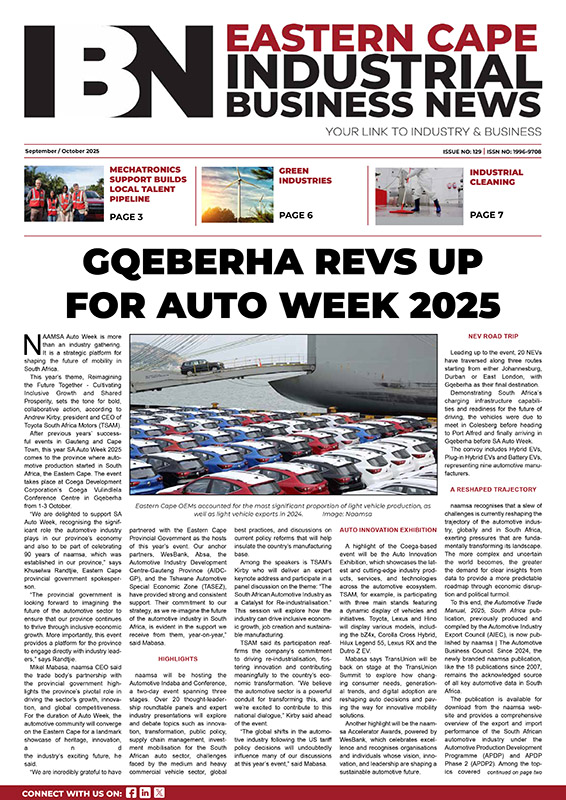SOUTH Africa’s transport systems are at a crossroads. On one hand, there is accelerating interest and adoption of electric vehicles (EVs) on the other, passenger and freight rail infrastructure is in need of modernisation, according to ABB.
“Both sectors depend on the same core infrastructure power, connectivity, digital enablement, safety and regulatory compliance. Without strong foundations in these areas, neither EV adoption nor rail modernisation can deliver on their full promise,” says Veron Maharaj (pictured), product marketing specialist at ABB.
At the 2025 conference and ministerial panels of the Southern African Railways Association (SARA), regional ministers and rail CEOs emphasised rail modernisation, electrification, hybrid traction, and climate-resilient rail, plus the importance of private-sector participation and stronger regulatory frameworks in terms of open access and economic regulation). These are framed as part of national and regional strategies to shift freight from road to rail and to support economic integration.
SARA is the regional association of railway operators in the SADC region. It exists to promote rail, harmonise regulation and technical standards across borders, and to advocate rail policy on behalf of members. Its remit explicitly includes rail policy advocacy, corridor coordination, and pushing for infrastructure development.
Both mass-electrified rail and growing EV fleets increase electricity demand and require coordinated planning for generation, network reinforcement and smart load management. SARA’s push for rail electrification therefore has direct relevance to national grid planning and to where charging infrastructure can be sited, such as co-located depot charging station power upgrades.
SARA’s advocacy for intermodal competitiveness, such as moving freight to rail, better corridors, and station modernisation, will create opportunities to integrate charging infrastructure at stations, logistics hubs, and yard depots, useful for both light EV fleets (last-mile) and for electrified public transport (buses, light rail).
ABB says its work in Africa especially South Africa in low- and medium-voltage infrastructure, safety-critical components and electrification puts it at the heart of accomplishing SARA’s strategy. The company provides compliant, lightweight, reliable components for rolling stock that meet stringent global fire and smoke safety standards, essential for passenger safety and operational continuity. ABB also delivers solutions for stations and data centres, enhancing automation, monitoring and operational efficiency. Its technologies in control and signalling, including UPS systems, support reliable rail operations and reduce downtime for passenger and freight services.
Upgrading older rail equipment, retrofitting legacy systems for better performance, reliability and safety is important. The company says South African rail operators including Prasa, Gautrain and Transnet can benefit from ABB’s expertise supporting OEMs, panel builders and maintenance workshops. For EVs to scale, there must also be smarter electrification at multiple levels in cities, for private and public transport, and in industrial nodes. ABB’s technologies in EV charging infrastructure, infrastructure control and power systems provide part of that bridge.
Underinvestment in rail infrastructure, particularly in reliability and safety, has slowed progress. According to ABB, policy and regulatory gaps continue to hold back the adoption of newer, more efficient technologies. At the same time, the rollout of affordable, accessible charging infrastructure must accelerate in step with the electrification of urban centres and regional transport systems. “If we improve accessibility and affordability in our rail and EV systems, adoption will follow. Investments in infrastructure not only reduce costs for freight and industry but also make sustainable mobility more accessible to the public,” Maharaj explains.
ABB will be participating in Smarter Mobility Africa from 1 to 2 October 2025, where it will share global best practice and local insights on electrification, EV adoption and rail modernisation.





